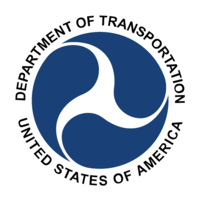The U.S. Department of Transportation’s Federal Motor Carrier Safety Administration (FMCSA) today announced a proposed rule to reduce burdens and costs for commercial driver’s license (CDL) applicants by allowing applicants to take general and specialized knowledge tests in a state other than the applicant’s state of residence. This proposal will increase flexibility for driver applicants by reducing time and travel expenditures while having no detrimental impact on safety.
To promote further flexibility in the CDL issuance processes, FMCSA proposes to allow driver applicants to take the CDL knowledge tests in states other than the applicant’s state of domicile. Under this proposed rule, a state would not be required to offer the knowledge tests to out-of-state applicants. However, if the testing state elects to offer the knowledge tests to these applicants, it would transmit the results to the state of domicile, which would be required to accept the results.
“Reducing burdens and expenses on CDL applicants has the potential to increase the number of available drivers. With the American economy continuing to grow at a record pace, the need for more commercial drivers is critical. This proposal offers commonsense regulatory changes that will help CDL applicants, without compromising the safety,” said FMCSA Administrator Raymond P. Martinez.
FMCSA has been focused on reducing regulatory barriers for CDL applicants. In March 2019, the agency authored a final rule streamlining the process and reducing costs to upgrade from a Class B to Class A CDL— a deregulatory action that will save eligible driver trainees and motor carriers $18 million annually.
Additionally, in June 2019, the Agency published a deregulatory proposal to streamline and simplify the process by which states are currently required to conduct skill tests for individuals seeking to obtain a CDL. With the goal of reducing administrative costs and helping to alleviate testing delays, this proposal will eliminate needless inconvenience and expense to CDL applicants.
The proposed rule will have a 60-day public comment period. A copy of the proposal, which includes information on submitting comments to the Federal Register docket, is available at:


